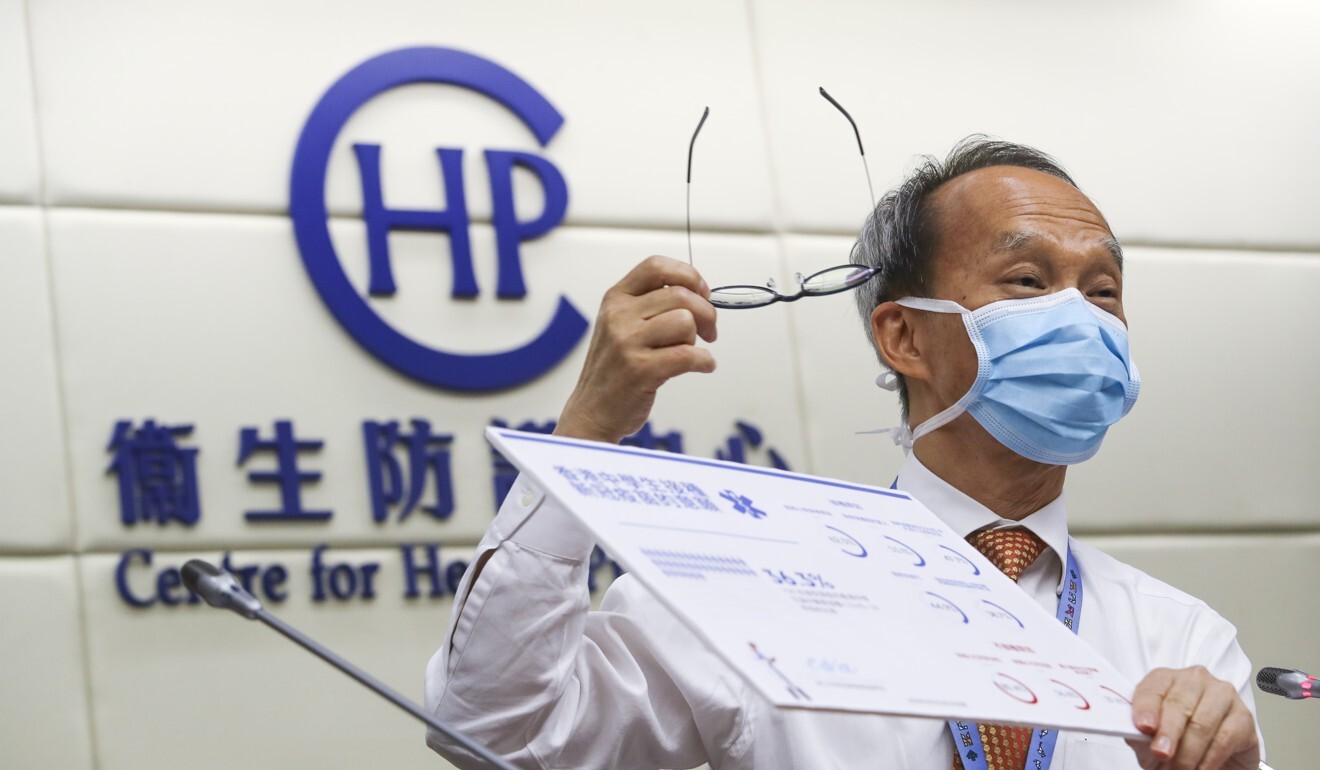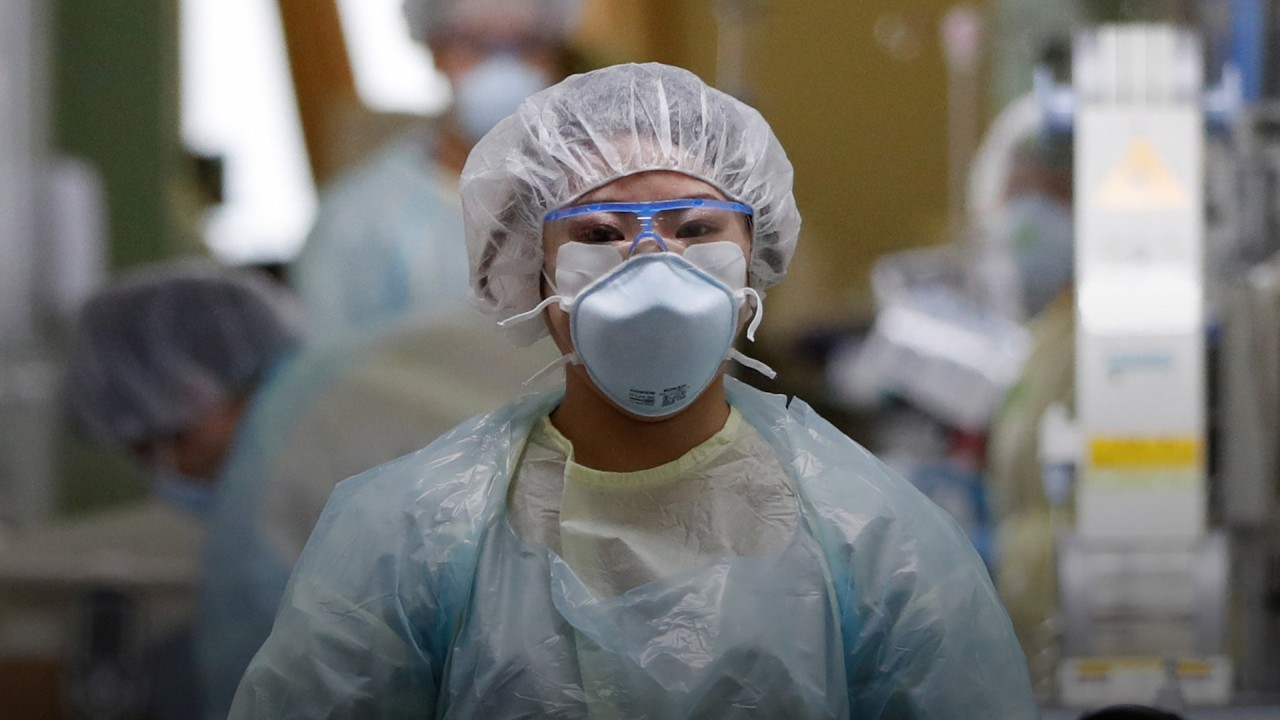
Hong Kong’s aggressive new drive to provide coronavirus vaccine to elderly care home residents, who remain vulnerable but not vaccinated
- Revised guidelines say any elderly person who has received flu jabs can have Covid-19 vaccine
- Only 5 per cent of care home residents vaccinated, far behind rates in England, Europe, US
Hong Kong has fallen well behind other similarly developed economies in vaccinating vulnerable old people in care homes, a Post check has found.
Although identified by the government as a key priority group, too few have received their jabs and officials are preparing to take a more aggressive approach to vaccinating them.
That compares miserably against 95.9 per cent in aged care homes in England, 76.5 per cent in long-term care facilities in the European Union and more than 80 per cent in the United States, according to checks by the Post.

Health professionals and academics who spoke to the Post blamed overly cautious decisions by doctors, the city’s weak primary health care system and confusing early messages on vaccine safety, as well as political factors.
They also questioned if the city would be able to vaccinate enough of its vulnerable residents to prevent key institutions from being overrun by cases of the more infectious Delta variant of the coronavirus and a potential fifth wave of infections.
Hong Kong’s vaccination drive got off to a sluggish start in late February, but finally picked up pace in recent weeks, hitting a daily high of more than 70,000 jabs this week.
So far, more than 2.5 million residents have had one jab, and more than 1.7 million have received both doses, out of the city’s population of 7.5 million.
However, the take-up among vulnerable groups is a long way behind that in Europe and the US.
Among care home staff, Hong Kong achieved a vaccination rate of 49 per cent early this month, up from around 30 per cent in mid June, but still lagging behind 86.2 per cent in England, and 60 per cent in the US.
Dr Tony Ling Siu-chi, president of the Hong Kong Public Doctors’ Association, said the low vaccination rate among the city’s vulnerable residents was due to the relatively poor primary health care system, with few having their own family doctor.
“That means people who have doubts cannot just go to a doctor who knows them well and get reassured,” he said. “They may be deterred if they have to find various specialists to have a thorough check-up before getting jabbed.”

Elderly Commission chairman Dr Lam Ching-choi said the government was considering vaccinating care home residents who did not have family members, a group which accounted for about 40 per cent of those in homes.
Lam, a member of the Executive Council, said those previously deemed suitable for flu shots would be vaccinated against Covid-19. Doctors would decide for those incapable of doing so themselves, and seek consent from the mentally sound.
“In the past, we did not approach this group of elderly people as they did not have family members,” he said, adding it helped that scientists now had a better understanding of the impact of vaccines on elderly people.
The more aggressive approach to vaccinations followed revised vaccination guidelines from the joint scientific committee under the Centre for Health Protection last month, Lam said.
Hong Kong needs to get more Covid shots into elderly arms
“When elderly people notice people around them are fine after receiving their shots, the momentum of vaccination will gradually build up,” Lam said.
Professor Lau Yu-lung, chairman of one of the scientific committees involved in updating the guidelines, conceded some people might have been put off by the initial guidelines in February.
The advice then was that the very frail elderly, including the bedridden, who hoped to receive the German-made BioNTech vaccine, “should be evaluated separately by attending clinicians and such clinical assessment should be exercised with greater caution”.
It also said that the efficacy data for phase three trials of the Chinese-made Sinovac vaccine for those aged 60 or older was limited due to the small sample size.

Lau said the overly cautious early recommendations followed reports of deaths among elderly people who were vaccinated in Norway, Germany and Switzerland, adding that those guidelines were based on the best evidence available at the time.
Similar incidents in Hong Kong at the start of the vaccination programme also scared some people, even though the expert panel monitoring adverse effects of Covid-19 vaccination did not find any links between those incidents and the vaccinations.
Professor Dale Fisher, an infectious diseases specialist at the National University of Singapore’s Yong Loo Lin School of Medicine, said knowing the specific needs of particular groups and offering targeted solutions would help push up vaccination rates.
Scrap travel bubble plans with Singapore, Hong Kong lawmakers say
When vaccination rates among seniors slowed down in Singapore, the country allowed walk-in vaccinations for those aged 60 or older last month, a measure being considered by Hong Kong’s health authorities.
Singapore also set up a vaccine clinic at every acute hospital to offer jabs to those with chronic diseases, another group identified as being reluctant to get vaccinated, Fisher said.
“Understanding people’s needs and accessibility play a huge part,” he said. “There are no secrets.”
Kenneth Chan Chi-yuk, chairman of the Elderly Services Association of Hong Kong, said the news of deaths following vaccinations had made some hold back on getting their family members vaccinated.
The lack of outreach arrangements to vaccinate care home staff early in the inoculation campaign made it difficult for tired workers to make the extra effort to get their jabs after work or on their days off, Chan said.

As for hospital workers, Hong Kong has vaccinated close to half, with a substantially higher rate for doctors than others like nurses, compared to herd immunity-level inoculation rates achieved among this group in some countries.
Ivan Law Cheuk-yiu, a nurse and vice-chairman of the Hospital Authority Employees Alliance, said some anti-pandemic restrictions, such as insisting on groups of no more than four in public even after coronavirus cases dwindled and other social-distancing measures were eased, left some people believing the rules were politically motivated to curb protests.
That, in turn, caused people to lose trust in what officials said about the safety and efficacy of vaccines.

03:16
‘Painful lessons’ of Sars helped Hong Kong’s elderly care homes avoid losing patients to Covid-19
Government pandemic adviser Professor Keiji Fukuda from the University of Hong Kong said vaccination remained the ultimate way for the city to tackle the epidemic.
“The currently low number of cases in Hong Kong is largely due to stringent border controls in place and not because the summer is somehow safer,” he said.
But the city could not stay in a bubble forever, he added. People who are unvaccinated are vulnerable, and will be more vulnerable in future.
He said: “Some people are simply waiting, but the question for them is, waiting for what?”

